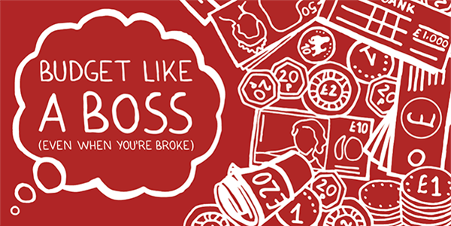Saving tips for young adults: budget like a boss when you’re broke

Budgeting. Let’s face it, it’s about as fun as pulling teeth. But it’s oh-so-necessary to ensure that you get to where you want to be financially, whether that’s studying stress-free at University, buying your first car, or treating yo’self to something fancy in the future. Unfortunately budgeting and saving tips for young adults online are often still really complicated and SO boring (hands up if you actually want to spend your free time researching ISAs?!) So we’ve compiled some advice below that’s going to help you to budget like a boss, even if you’re totally broke, or just starting out. Thank us when you’re rich.
WTF is budgeting anyway?
So what the hell is budgeting and why do we need to concern ourselves with it anyway? Well Tom McLeod, a Finance Graduate from O2 told us, (thankfully) that it’s less about living on bread and water and dust, and more about taking simple steps to plan for the future so we’re not caught short. Makes sense, we guess. Tom said that, “saving tips for young adults are important – budgeting doesn’t mean not spending cash on anything except essentials, it’s more about cutting out the stuff that you’d look back on and go; ‘that was a waste of money’.” All true.
“The cost of living is getting higher whether that be the much reported,” he continued. “‘Shrinkflation’ (where the sizes of things we buy is getting smaller but the price is the same) hit people hard. As does the cost of house prices which is not relative to income. Getting on the property ladder is one of the biggest challenges to our generation and saving is vital to give the best chance possible.” Tom is so very, very wise.
And we also spoke to Charlotte Little, Peer Facilitator at the National Youth Agency’s My Money Now for further finance wisdom, and she said creating better saving tips for young adults can also help decrease the rate of mental health issues in young people as so many of us are stressed about money. She said; “financial worry has been shown to be a contributing factor to decreased well-being. A third of young people have debts of almost £3,000 and experience significant concerns about money. If young people spend less time worrying about their finances, this will lead to lower levels of anxiety.”
Decide what type of saver you are
Not all money advice is made equal you know and not all tips will suit everyone. Charlotte pointed out that before you start saving you need to “determine what kind of spender you are first”.
She continued: “From a personal experience, I have found that taking out physical money is effective in deterring me from spending…I find it much harder to spend physical money than tapping my card and using contactless! I think this is a great way of visually seeing exactly what you are spending…take out a set amount of cash each week and see how you get on, compared to using your debit card and challenge friends to add a competitive element and compare how you got on!”
So using actual tangible money instead of going digital can help you save BIG. It doesn’t sound revolutionary, but if it’s good enough for Charlotte…
Make your money work for you
Ok, so once you’ve started saving you’ll need somewhere to keep all your hard-earned cash, right? Well choosing the right bank is really important because they all have different deals (although tbh there isn’t one brand that is always better for young people). It looks complicated when you start researching bank offers though, so we’d recommend checking out some of the articles on Money Saving Expert for concrete, TRUSTWORTHY tips on how to choose the right account for you. This site is written by finance experts and is really clear and easy to understand. They explain the top interest rates and benefits for different accounts whether you’re a student, graduate or someone who just wants to get the best deals for their money, so go read everything like, now.
Do little things to help you save each day
There are loads of simple tricks you can employ in your day to day life to help you stack that P a little faster. Try some of these easy saving tips for young adults and watch the pounds pour in:
- always switch your lights off when you leave the room to keep bills down
- get a Monzo card which is a free top-up card that links to your bank and amazingly also offers zero charges when taking out money abroad,
- avoid store cards and credit cards like the plague (unless you have a direct debit to pay them off on time),
- avoid payday loans like the small pox9 because those companies are only out to exploit you)
- always pay for things on time to ensure you get a good credit score (useful later on when you want to buy a house or car, trust us)
- scan the internet for discount codes every time you’re about to complete a purchase online.
Get started & get ‘appy
The number one thing you can do for your future finances , is to start thinking about saving up today. And luckily there are *loads* of great apps that can make budgeting and saving tips for young adults, a whole lot less mind-numbing. The best two, according to Tom, are You Need A Budget and Squirrel because the first is “a a really good app for setting up and managing a day to day budget to help to control spending” and the second is an app that helps you “manage your savings by holding back what you want to save or need to spend on bills. We checked out You Need A Budget and saw that it also syncs with your banks, lets you set monthly saving goals each month and teaches you how to stay out of debt with spending caps and reminders, so we’ll probs download that, like now. Charlotte also advised using Fudget as it’s “very easy to use and shows you very simply, the money you are currently spending/expected to spend throughout the month.” SO MANY APPS SO LITTLE TIME.
Keep Track
The only way you’re going to get a feel for how much you’re spending is to actually keep a record and not keep your head in the sand and pretend that you’re not spending when/if you’re totally out of control. Be honest! Start tracking things on your phone, or keep receipts (old school but it works!
Tom also advises recording all your outgoings in a spreadsheet or document, too. “The best way to do it is to categorise different types of spend, each month add exactly how much you’ve spent on food, clothes etc”, he said. “Even just doing this once can be quite an eye opener on how things that might seem cheap add up. After that set a budget against each of those categories of how much you’d like to spend and at the end of each month go back and check if you’ve met that target.
Don’t be too hard on yourself
Ok so you blew half you internship wage on a pair of Yeezy’s. It happens. But the trick is, bouncing back after a big blow-out – don’t give up if you don’t meet your targets right away! As Tom says: “Sometimes you’ll overspend on certain categories because there are always unexpected costs that come up, but if you’ve allowed some space in your budget and overall spending is controlled that’s OK!”
